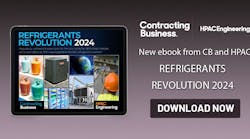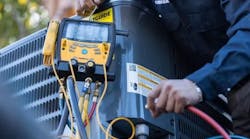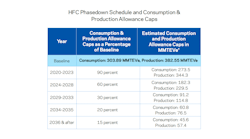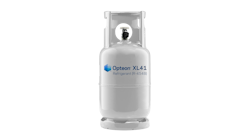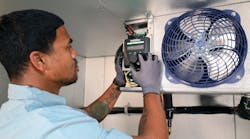When it comes to the shift to R-410A refrigerant, Dana Shanower says the options for HVACR contractors are simple: you can gear up for it, or hang up your tools, park your trucks, and let the next contractor handle it.
“They don’t have much of a choice. R-410 is the replacement for R-22,” he says.
Shanower — lead trainer for the United Association (UA) out of Local 94 in Canton, OH — will lead an R-410A “Train the Trainer” session during the HVAC Excellence Trainers & Educators Conference, March. 20-22, at the South Point hotel, Las Vegas, NV.
Shanower’s program will focus on the changes to the Montreal protocol and how the accelerated phase out of R-22 is affecting the HVAC industry. The session will teach technicians safe handling and proper charging procedures, and include information on refrigerant oils, safety controls, refrigerant safety, operating characteristics of R-410A, proper application and retrofitting. Safety is indeed a major consideration when making the move to R-410A.
“The difference in the pressures. Many are unaware that the pressure is so much greater with R-410A,” Shanower says. “[Manufacturers] use the same fittings on an R-410A system as they do on an R-22 system. So a technician could accidentally hook up a set of R-22 hoses to it. And the gauges and hoses will not withstand the pressures of R-410A gas. You’re pretty much looking at retooling. And, you can’t cross mix these gases because you’ll introduce R-22 oil into an R-410A system. You’ll lower the efficiency of that system, and in time, burn it out.”
Among the additional sessions:
- Raising the HVAC Industry’s Performance Bar
- Diagnosing the Thermal Boundary of the Building Envelope
- Blower Door and Duct Leakage Testing
- Radiant 101 Variable Refrigerant Volume Technology
- Zoning Systems
- Air Flow and more.
Visit http://www.hvacexcellence.org/nhetc/ for the entire schedule.
